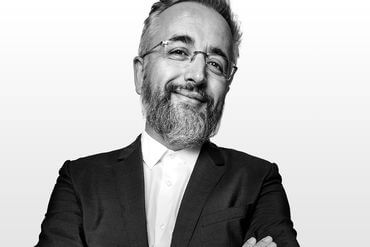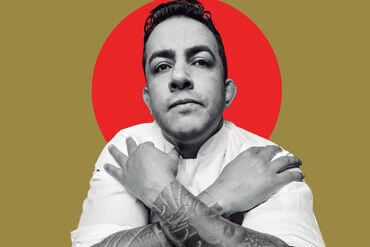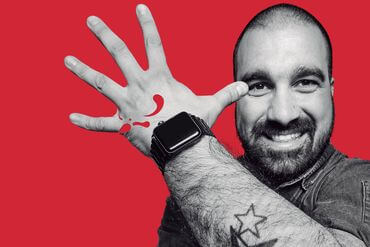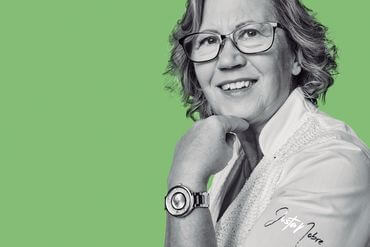
Henrique Sá Pessoa
Henrique Sa Pessoa has two Michelin stars for his restaurant Alma in Lisbon and is Portugal’s most television-friendly and internationally famous chef. From consolidating projects in London and Amsterdam to reopening his emblematic restaurant in Macau, Sa Pessoa’s life is a hectic whirlwind that is defined by creating new concepts, travel and challenges. Equal parts chef and businessman (although he’d describe himself as a chef) he has discovered the secret of turning everything he touches into gold.
How are you? How are things for you right now, personally and professionally?
I’m in the middle of a crazy period right now: travelling, consolidating my international projects (London and Amsterdam) and reopening Macau, which has been closed since December 2020 and opens in August this year I've had to travel a lot and whenever I'm here I have my consultancy in Porto, with a gastronomic restaurant to which we remain fully dedicated, as well as Alma, Tapisco, Balcão and Time Out Market...
On top of all this, there's also my new television programme, 24 Kitchen, which will premiere in January. It’s been a busy year. Now I think I need to enjoy it. Because we only have one life. I have a daughter and these days I want to have more of a personal life. To be with my friends, my family... Sometimes it's hard to find that balance. It's a bit tough, but these are phases of life.

Henrique Sá Pessoa
How do you manage to be everywhere and continue to consolidate Alma, your main project?
When you start international projects, at the beginning, the most important thing is to establish the basis: the teams, philosophy... That’s why starting is the hardest part. You need to know the market, get the teams to understand you and for chemistry to develop between everyone. But I’ve had a well-established team for several years now and I’ve also got my own R&D structure, training... When you create a new project, it’s important to consolidate the teams and get everything up and running. There are no miracles. The beginning is tough because you’ve got to be everywhere. You feel like the Pope when you’re travelling, trying to get people to follow your philosophy just the way you want.
There are no miracles. The beginning is tough because you’ve got to get everything up and running
How many people work in your restaurants?
There’s a team of about 150-200 people across all the brands, which have different partners.
Does it make your head spin to think that so many people depend on your projects?
Yes. I try not to think about it because it’s a huge amount of pressure. I like to see myself as a teacher who gives out the coordinates. Everything hangs on what we all do together. And it’s important to trust your teams, in your kitchen... And create a brand that people like. Consistency is the hardest thing in the restaurant business today. Making sure that when customers come to eat in London, Macau or Portugal, their experience has the same seal of quality even if it’s different (because each restaurant is different). That dining in a Henrique Sa Pessoa restaurant is synonymous with eating well. And achieving consistency is really difficult because every country is different. The key is really listening to customers and transmitting your philosophy to the team.

Alentejo style porc
Businessman or chef?
There are two types of chef: the chef who has a restaurant and dedicates his life to the restaurant, is in the kitchen every day, is creative, has his team... There came a time when I had to decide whether I wanted to be that type of chef or whether I wanted more. And when you want more, you need a more strategic vision, outside of the kitchen. Now I’m a businessman too, but I’m still a chef. Although on an everyday basis, I cook far less than before. Because what I’m really in charge of is creating the dishes and concepts.
Do you miss life in a small restaurant and the more “romantic” side of cooking?
Yes, but that depends a lot on each person. Spending 12 hours a day in a restaurant doesn’t make me happy. It did for a while, but I didn’t want to do that for the rest of my life, it’s too monotonous for me. These days, what makes me happy is creating concepts and putting teams together. Paving the way for the next generation and consolidating the Portugal brand. Making Portuguese cooking known around the world. On the flip side, Alma is always in my heart. You have to remember that, when you want to do more, you need to have your brand, the thing that opened the door for you to everything else. If Alma dies, everything else will die too. It’s essential that Alma is my main project and my heart. I still think I’m a physically present person. I get really excited about being there in the kitchen, talking to customers...
These days, what makes me happy is creating concepts and putting teams together
You’ve now got all kinds of restaurant, from gourmet restaurants to fast casual. What’s the common denominator across the Henrique Sa Pessoa brands?
A chef needs to know how to make both a 5-euro and a 75-euro dish. Because there’s good and bad cooking. Lots of chefs only focus on haute cuisine and never want to venture outside of that... I started the other way around: with concepts that weren’t really haute cuisine and, when I was in my 40s, I won my first Michelin star. What matters most is knowing the quality you want in your cooking, starting with the product and the team. If your team isn’t motivated and well trained, you’re not going anywhere. When it comes to me, the focus on quality is noticeable in the flavour of the dishes. And, from that starting point, you can make everything from hamburgers to Asian food, fusion cooking, haute cuisine, conceptual dishes... You have to focus your values on quality, flavour and atmosphere... And from there, you can create all kinds of concepts.

Dining room
You’re Portugal’s most television-friendly and internationally famous chef. How does that make you feel?
I’ve appeared on Portuguese television for years. Of course, that means it’s hard for me to be anonymous here. Over the past few years, after the Michelin stars and the restaurants, I’ve noticed people now also recognise me outside of Portugal. But I’m not the only one. José Avillez is too, for example. But it’s true that there are still only a few of us chefs who have a degree of international fame. And it’s a responsibility, but I try to keep on doing what excites me: motivating the next generation and opening the door for the people who are coming next.







